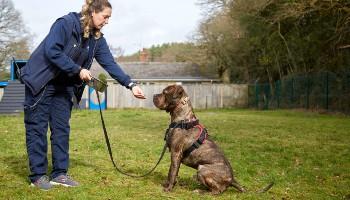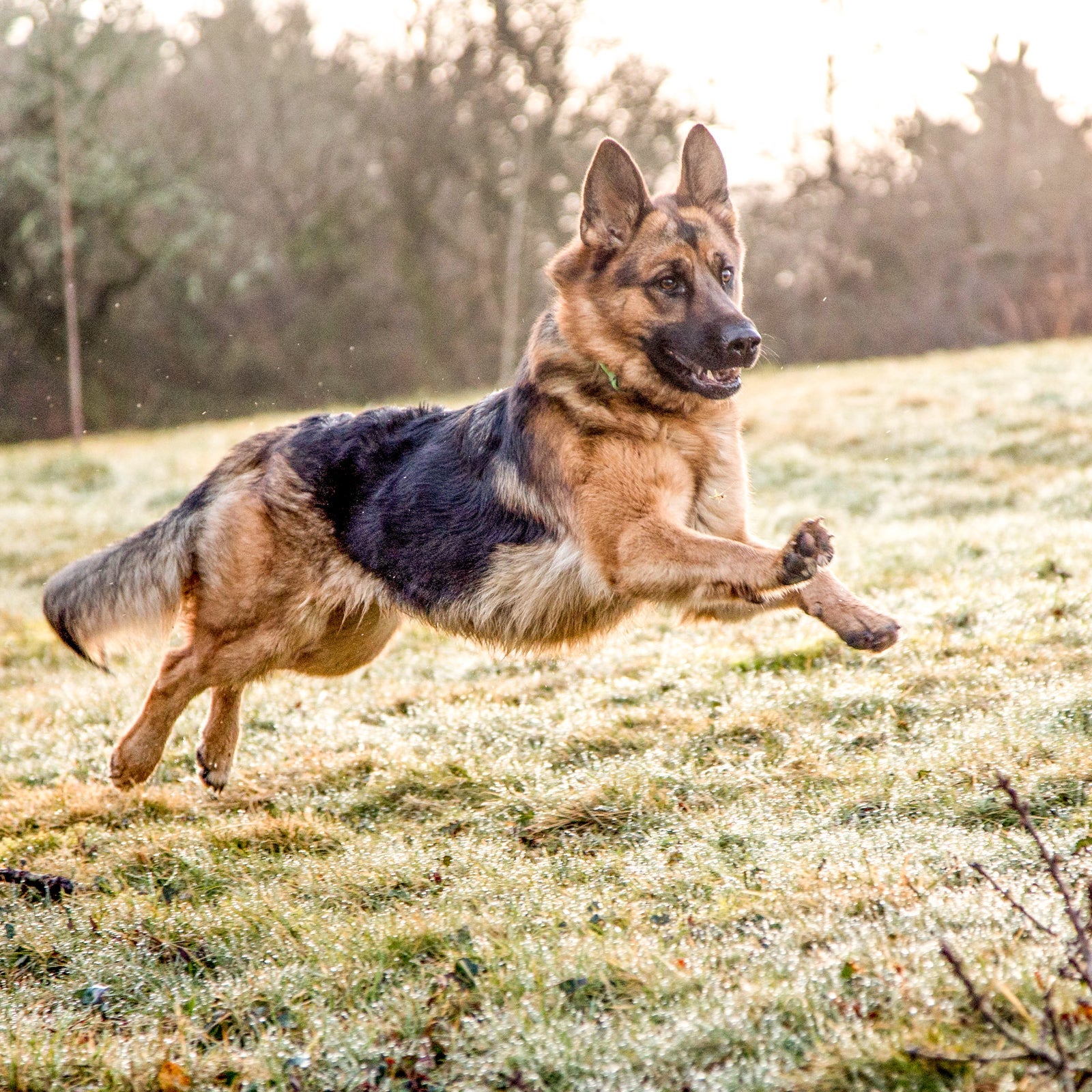Expert Dog Training Advice to Strengthen Your Bond
Expert Dog Training Advice to Strengthen Your Bond
Blog Article
The Ultimate Overview to Pet Dog Training: Transform Your Pet's Actions
Reliable dog training is essential for promoting a harmonious connection between family pets and their proprietors. This overview not only intends to outfit you with the required devices to transform your dog's habits yet likewise welcomes you to explore exactly how these fundamental principles can lead to a deeper connection with your pet dog.
Comprehending Dog Actions
Understanding pet dog actions is necessary for reliable training and an unified relationship between pets and their owners. A canine's habits is affected by a mix of genes, atmosphere, and experiences. Dog training. Identifying these variables allows proprietors to customize their training approaches to meet the private demands of their pet dogs
Pets communicate primarily through body language, vocalizations, and faces. A wagging tail can suggest enjoyment or joy, while a put tail may indicate worry or submission. Observing these signs enables proprietors to react properly, strengthening positive habits and addressing adverse ones effectively.
Furthermore, understanding the social structure of pets can supply insights right into their behavior. Dogs are pack pets, and they flourish in an organized atmosphere. Developing constant policies and clear boundaries can protect against confusion and advertise a complacency.
In addition, acknowledging the natural reactions of canines, such as the impulse to go after or dig, is important. These instincts can be rerouted via suitable electrical outlets, such as play or exercise. By comprehensively comprehending these behavioral elements, proprietors can cultivate a positive training experience, inevitably resulting in a obedient and well-adjusted canine buddy.
Necessary Educating Methods
Effective canine training relies upon a selection of important methods that can considerably boost the learning process for both the proprietor and the pet. One fundamental method is favorable support, which entails fulfilling desirable habits with deals with, appreciation, or play. This approach urges canines to duplicate the habits that bring about favorable end results, fostering a relying on partnership in between the pet dog and proprietor.
An additional key method is uniformity in commands and assumptions. Utilizing the exact same spoken signs and hand signals assists the pet dog comprehend what is needed, lowering confusion and promoting quicker discovering. Furthermore, establishing clear boundaries and rules is vital for reliable interaction.
Socialization is also a necessary element of training. Subjecting dogs to various atmospheres, individuals, and other pets assists them develop suitable social skills and reduces anxiousness in unfamiliar situations.
Last but not least, persistence and timing are important. Educating sessions must be short but constant, making sure that the canine continues to be involved and receptive. By using these vital methods, owners can develop a organized and positive training experience that advertises good habits and strengthens the bond with their canine friends.
Producing an Educating Arrange
Just how can a well-structured training schedule boost a pet dog's learning experience? A training routine provides uniformity, ensuring that pet dogs receive routine, concentrated direction. This predictability aids canines recognize what is expected of them, enhancing their knowing and enabling better retention of commands and actions.
When developing a training schedule, it is important to consider the canine's age, type, and individual character. Youthful puppies might take advantage of shorter, much more constant sessions, see this while grown-up dogs may grow with longer, less regular training durations. Incorporating a variety of activities can likewise maintain the sessions engaging, avoiding monotony and advertising excitement for learning.
Furthermore, scheduling training sessions at certain times of the day can aid solidify a routine. For example, matching training with everyday strolls or play can create a positive association with discovering. It is additionally critical to consist of time for support, such as deals with or appreciation, to award preferred habits immediately.
Last but not least, adaptability is vital. While uniformity is crucial, being adaptable to the pet dog's mood or energy degree can improve their learning experience. A well-crafted training timetable eventually lays the structure for efficient communication and a more powerful bond in between the pet and proprietor.
Typical Training Challenges
Regardless of having a well-structured training timetable, pet dog owners typically experience various challenges throughout the training process. One common concern is incongruity in visit this site right here hints and commands. When multiple relative use various terms or tones, a pet may become overwhelmed, impeding its capability to learn properly.
One more frequent obstacle is diversion. Dog training. Canines are naturally interested animals, and external stimuli such as various other animals, sounds, or individuals can divert their interest during training sessions. This requires proprietors to develop a controlled atmosphere or gradually present distractions to reinforce emphasis
Furthermore, varying power levels can impact training end results. High-energy canines might have a hard time to calm down and concentrate, while extra laid-back types may require additional motivation to involve. Tailoring the training technique to fit the individual pet dog's personality is necessary for success.

Structure a Strong Bond
A strong bond between a pet dog and its proprietor is essential for successful training and overall wellness. Dog training. This connection cultivates trust, which is essential for efficient interaction throughout the training procedure. When a pet dog feels linked and safe and secure to its proprietor, it is most likely to react favorably to commands and signs
To build this bond, uniformity is key. Developing a regimen that consists of normal feeding, workout, and training sessions aids develop a feeling of security. In addition, favorable support methods, such as treats, praise, and play, reinforce desired behaviors while strengthening the psychological link.
Socializing is an additional essential facet of bond-building. Revealing your pet to different environments, people, and various other pets assists them really feel extra positive and comfortable, boosting the bond with their proprietor. Participating in activities with each other, such as strolling, playing fetch, or participating in obedience training, advertises synergy and shared enjoyment.
Verdict

Recognizing canine actions is important for efficient training and an unified relationship in between dogs and their owners.Reliable dog training depends on a selection of important methods that can significantly improve the discovering procedure for both the canine and the owner.Despite having a well-structured training routine, pet owners typically run into various difficulties throughout the training procedure.In conclusion, effective pet training relies on a detailed understanding of canine actions, the application of essential techniques, and the facility of an organized training routine. By highlighting favorable support and uniformity, pet proprietors can significantly enhance their animals' habits, inevitably making certain a harmonious relationship and promoting the well-being of both the dog and its environment.
Report this page